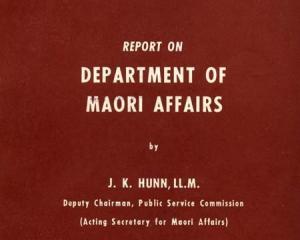But underneath those again, I suspect there are much slower forces of change in political outlook. I think this last election showed early signs of a new political landscape emerging, one that puts sustainability at the core of the political debate.
After the election, the Otago Daily Times published a table of party votes at polling booths around the University of Otago, the places where the new generation of voters express their political preferences.
The headline rightly pointed to significant increases in National party votes and declines in support for both the Greens and Labour. Clearly the mood now favours the political philosophy championed by National.
But something else is happening too. Not many elections ago, we would have seen nearly equal numbers favouring Labour, with Greens a distant third. No longer: the political preferences of next-generation voters who do not espouse a National world-view are now evenly split between Labour and Green.
While Labour strategists ponder what went wrong, the rest of us might ask what this shift in ''opposition'' outlook means for our future.
I am now going to borrow a line from the new-right revolutionaries of the 1980s who shifted New Zealand's political stance so radically towards market mechanisms and away from social support for the disadvantaged. The line is: ''Anyone who has thought about it will know that ...'' , or if you prefer, ''TINA: there is no alternative''.
There is a splendid arrogance about these statements, a myopic disregard for alternative points of view that characterises all revolutionaries. It is language of radical change and that is why it is relevant now.
So try this: Anyone who has thought about it will know that we cannot go on using up our planet's finite resources beyond sustainable levels indefinitely. In particular, we cannot go on dumping carbon into the atmosphere at rates that threaten radical disruption not only to human life but to the diversity of all forms of life on Earth for centuries to come. There is no alternative, we have to change. TINA.
I offer for your consideration the following thesis: the shift in ''opposition'' among young voters from Labour to Green is an early sign of a completely new basis for political debate.
The class struggles of the 19th and 20th centuries that gave birth to Labour and National, to ''right'' (are they really right?) and ''left'', will gradually be overtaken by a new political balance between exploitation and sustainability. For a century the great political struggles have been about distribution of the resource pie. Both sides of this debate have aimed to win that struggle by growing the pie better than their opponents. The big new political struggles will be about pie protection. There is no alternative.
- Colin Campbell-Hunt is a professor in the University of Otago Business School.
Each week in this column, one of a team of writers addresses issues of sustainability.












